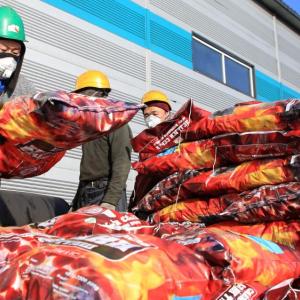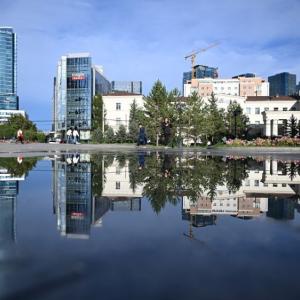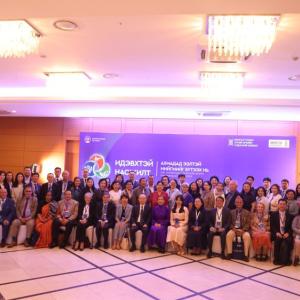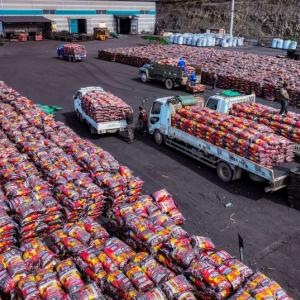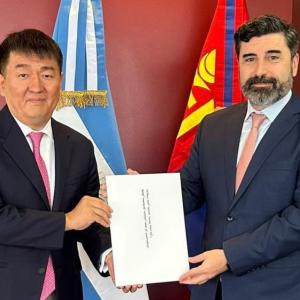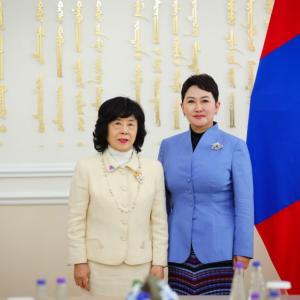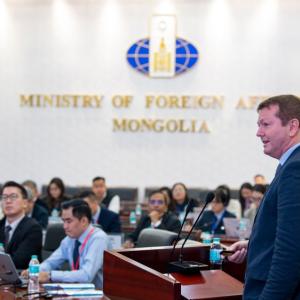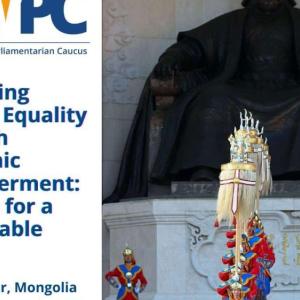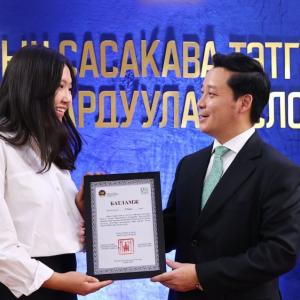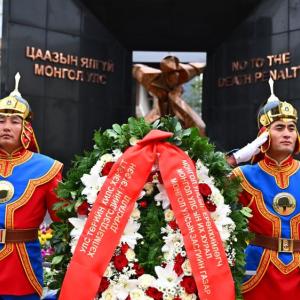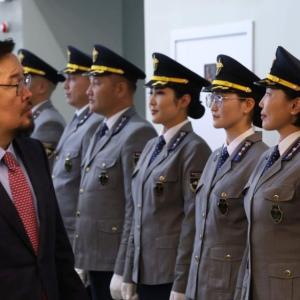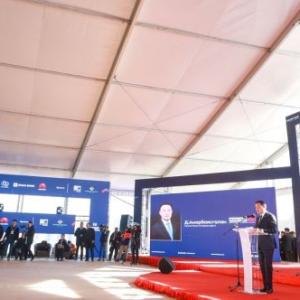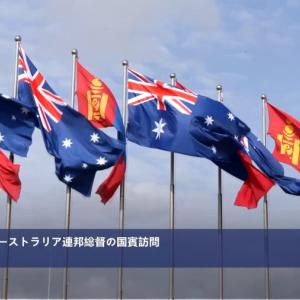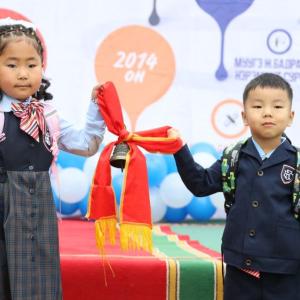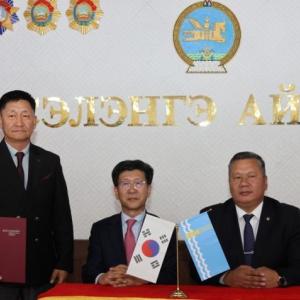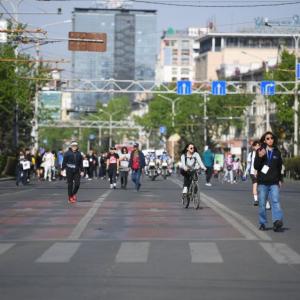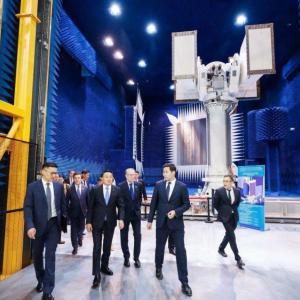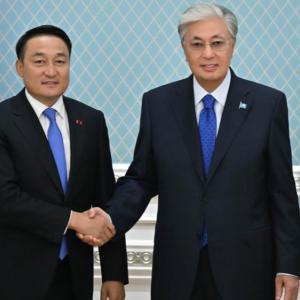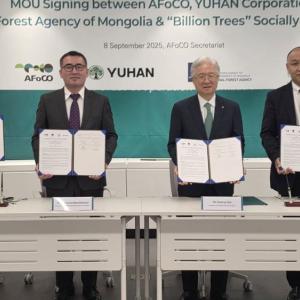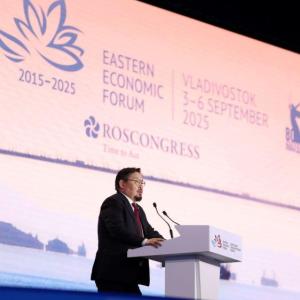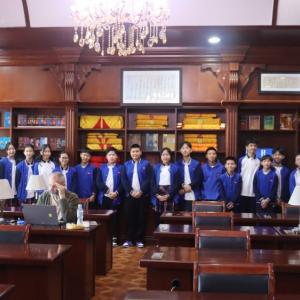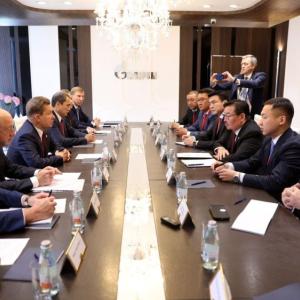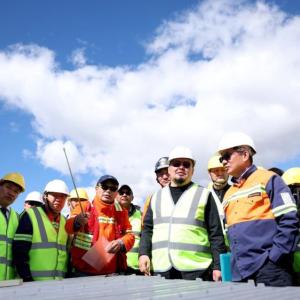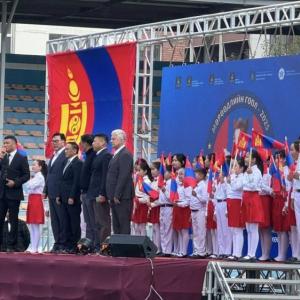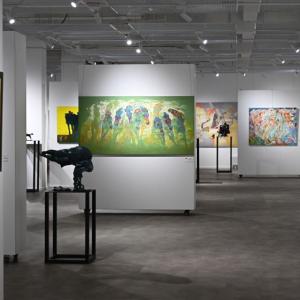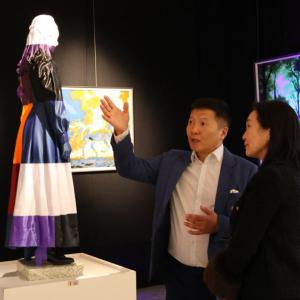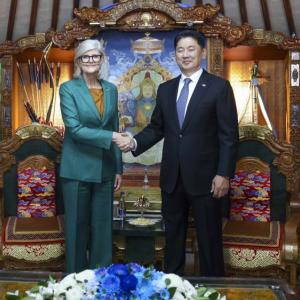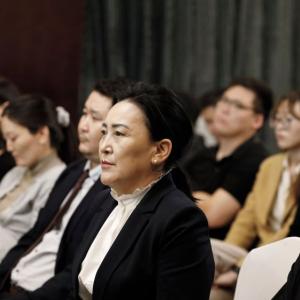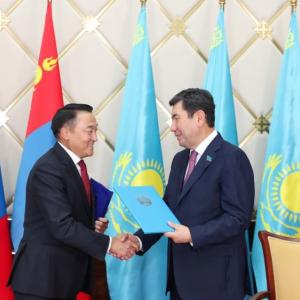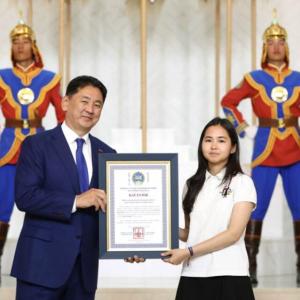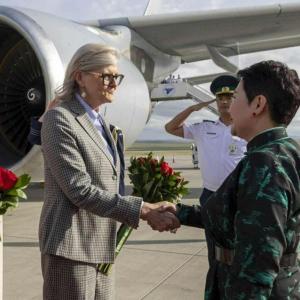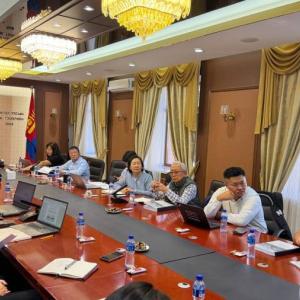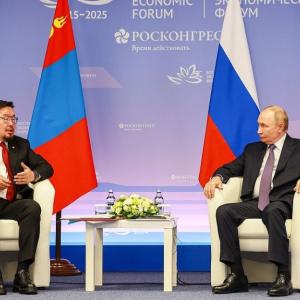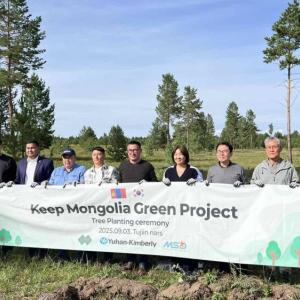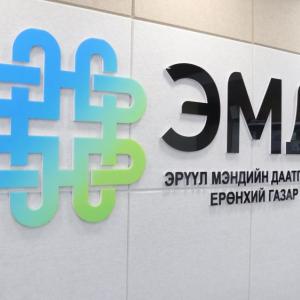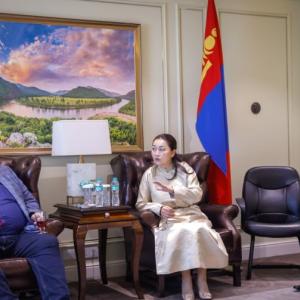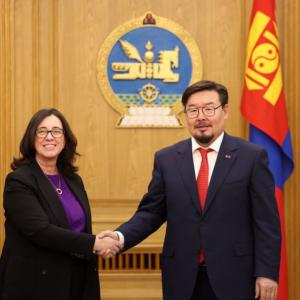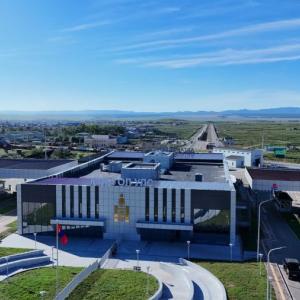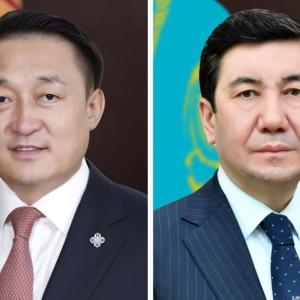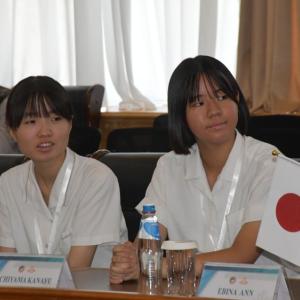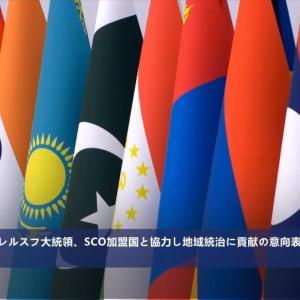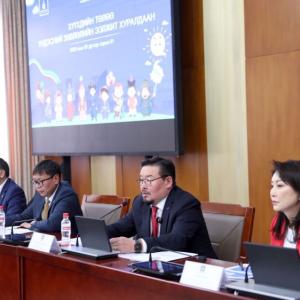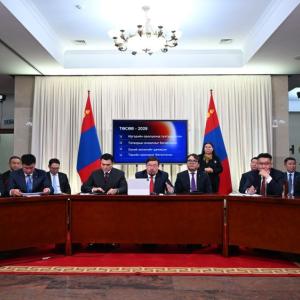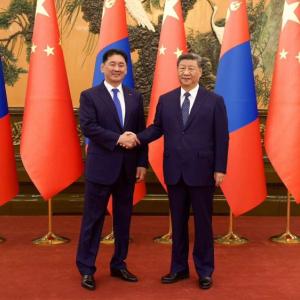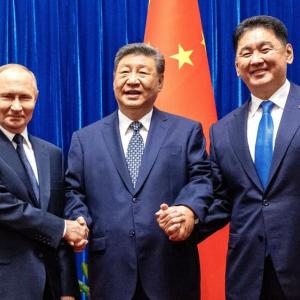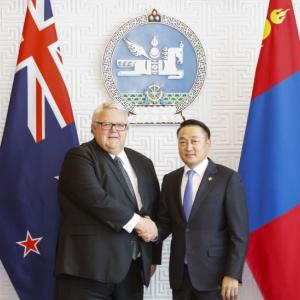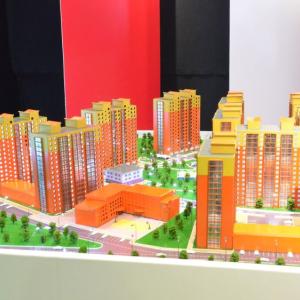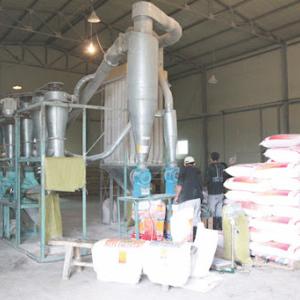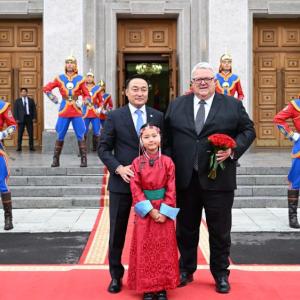High-Level Forum on Clean Air 2023, Ulaanbaatar
Economy
Ulaanbaatar, March 3, 2023 /MONTSAME/. The High-Level Forum on Clean Air is being
jointly organized by the Ministry of Environment and Tourism of Mongolia and
the United Nations Economic and Social Commission for Asia and the Pacific
(ESCAP) on 2-3 March 2023 in Ulaanbaatar, Mongolia.
Air pollution has a large impact on human health and ecosystems and is
the most important global environmental cause of premature deaths. The latest update of the WHO Air Quality
Guidelines (2021) states that 7 million people worldwide annually die
prematurely of cardiovascular and respiratory diseases that are attributable to
ambient and household air pollution. The greatest number (two-thirds) of these
premature deaths occurred in the South-East Asian and Western Pacific regions
(as defined by the WHO), which can be attributed to the rapid economical and
industrial, and urban growth in these areas.
To overcome some of these barriers, member States of ESCAP have adopted,
at the 7th session of the ESCAP Committee on Environment and Development, the
Asia-Pacific Regional Action Programme on Air Pollution (RAPAP). In support of
actions, the RAPAP underlines opportunities for strengthening and leveraging
existing multilateral cooperation initiatives and their relevant scientific
committees. The RAPAP also recommends formally involving national experts in
scientific and technical activities including through a Technical Expert Group,
and engaging major groups and other stakeholders.
The forum is focusing on: 1) Presenting the RAPAP to multilateral,
regional, and national stakeholders for strengthening science-based and
policy-oriented cooperation for improved air quality management; 2) Further elaborating the areas and modality of
policy and technical cooperation of the RAPAP; 3) Developing partnership
activities among multilateral and international cooperation mechanisms on air
pollution in support of national action on clean air; 4) Discussing the
contribution of the RAPAP to the work of multilateral and international cooperation
mechanisms; 5) Formulating the modality of working groups on data and air
quality standards.

The Opening session was held on March 2 at Shangri-La Ulaanbaatar. The
Executive Secretary of United Nations ESCAP Ms. Armida Alisjahbana and Minister
of Environment and Tourism of Mongolia Mr. Bat-Erdene delivered the opening remarks
and the greeting message by Prime Minister Mr. Oyun-Erdene was presented.
In her opening remarks,
Ms. Armida Alisjahbana said, “The
adoption of the Action Programm and this forum demonstrates that regional
cooperation is not only possible, but imperative to address the region's most
pressing environmental issues. Too many of our citizens, especially the most
vulnerable populations are regularly breathing unclean air. The risk to health
and the cost to our economies and our environment require urgent actions. This
forum must focus on leveraging our collective expertise and capacities to
ensure those actions are taken immediately. Through sub-regional dialogs
facilitated by ESCAP and the member states led consultations that generated
consensus on a focused and actionable program, we now have in the
regional action program, five clearly defined areas for countries to develop
domestic actions as well as for enhanced regional cooperation. We know that circumstances vary across our
region, but all countries can improve, and an enhanced exchange of experiences
can support country level actions.”
Noting the fact that the Forum is being held
in the coldest and one of the most vulnerable cities to climate change, the
Minister of Environment and Tourism Mr. Bat-Erdene said, “For developing
countries, the air pollution is attributable to cold winter and outdated
technologies. Yet, we can contribute to mitigating climate change through
renewable energy solutions, using eco cars, and creating green jobs. To that
extent, we are striving to develop international and regional cooperation and
have factories, technologies, and facilities that are environmentally friendly
and meet international health
standards.”

The greeting message of the Prime Minister of
Mongolia Mr. Oyun-Erdene was presented during the opening session. In his
message, the Prime Minister of Mongolia Mr. Oyun-Erdene said, “Besides air
pollution, sand dust, soil pollution, and household air pollution had become
critical issues for Mongolia. The goals to reduce air pollution in the capital
city by up to 80 percent, to provide up to 30 percent of energy consumption
with renewable energy by 2030, and to contribute to the energy supply of the
region in the future are specified in the "Vision-2050," a long-term
policy of the Government. Moreover, we strive to implement the “One Billion
Trees” national campaign with the international community, cooperate with Korea,
China, and Japan in mitigating climate change, and strengthen cooperation
between developing countries. Currently, under the “One Billion trees” national
campaign, about 32 million trees have been planted."
This forum, which brought together the high-level representatives from 53 countries, such as the USA, the Republic of India, the UK, Japan, Australia, South Korea, Singapore, Russia, Turkey, China, and New Zealand, which are members of the UNESCAP, as well as over 200 representatives of international research and development organizations, is one of the activities in preparation for the 17th conference of the parties to the United Nations Framework Convention on Desertification (COP 17), which will be held in Mongolia in 2026.
During this forum, five sessions are being held, including Improving Air
Quality Management, Air Quality Monitoring, Best Practice Sharing and Capacity
Building, Collaboration on Air Quality Data and Standards, and Partnership for
RAPAP implementation. 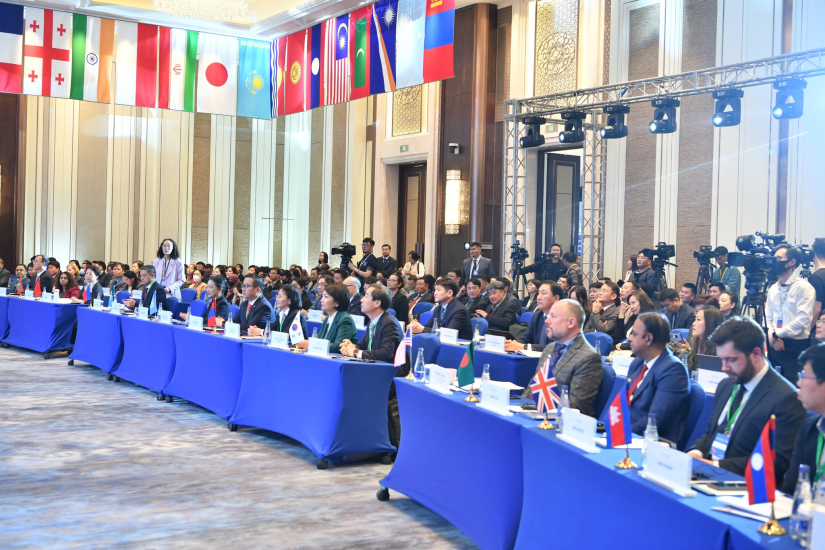

 Ulaanbaatar
Ulaanbaatar




